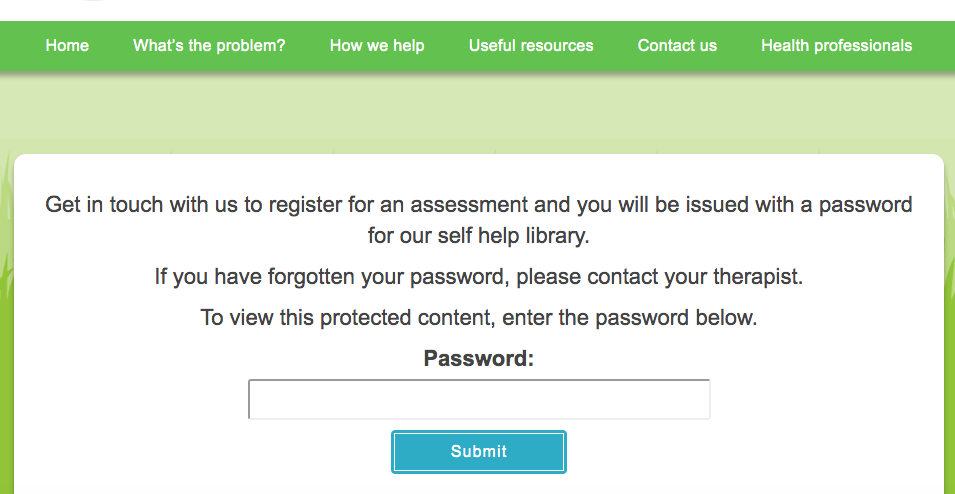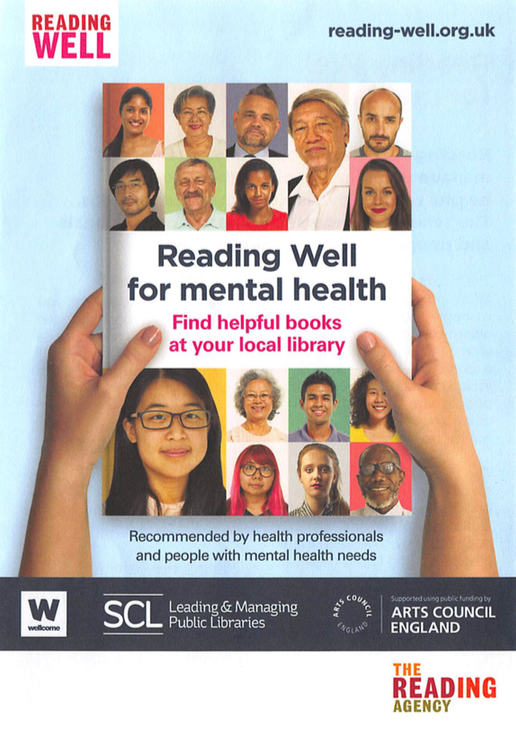
Episode Summary
When revisiting the last letter I received from the NHS about the treatment they plan for me in 6 months time, I discovered there were some free resources to support me in my treatment. So I went to the website to get them… You won’t believe what I found when I got there! SPOILER ALERT – I still don’t have them!
Episode Transcript (Edited)
Hi and welcome to today’s episode of Hope Help Happiness.
Today I’ve been catching up on many of the things I’d let slip whilst I was struggling with my mental wellbeing. Things like unopened letters and other things that needed sorting out that I’d left undone.
It’s been a interesting experience as I’ve found letters unopened from as long ago as eight months ago. Not dealing with things was an impact of how I was feeling about myself and the mental and emotional state I’d got myself into. All that combined had seriously affected my ability to function.
So I’ve been going through a pile of stuff and came across the collection of letters I’ve referred to in a previous episode from the NHS. This was correspondence about the various consultations, appointments, assessments and phone calls I’d had over that initial 6 week period after going to see my GP.
If you’ve listened to that episode you’ll know the first treatment I can expect isn’t going to be for at least another 6 months. When I came across that pile of correspondence, I thought I’d just check the last letter to remind myself where I was.
This was the letter that actually told me it would take six to seven months before I’d be seen. When I re-read the letter, I noticed at the bottom something I’d missed first time round. There was a link to a website with some information that could support me in the challenges I was facing.
The reason why I missed it first time round is because when I get into a mental funk (for want of a better word), it becomes very difficult for me to process things on a deep level. It is one of the things I’ve noticed about my ability to function when I have been really low.
I think there are issues around “mental fog” combined with aspects of learned helplessness. I’ve yet to get to the bottom of that and am still researching it. But whatever the cause, this is why it’s so easy to resort to going to my bed because it’s the easiest thing for me to do. I can rollover, put my head under the duvet, go to sleep and then hopefully the world will just go away for a while.
And that’s what happens when I am in my worst possible state, I suppose.
But when I am faced with something that requires me to think and make decisions or process and prioritise, I lose the ability to do that without becoming overwhelmed and anxious. It can be quite distressing to find yourself in that state.
So it’s very easy just to let things pile up because I basically put my head in the sand and hope things will go away.
As I come out of that, my ability to deal with things definitely improves. The last four weeks has seen a tremendous increase in my ability to focus and concentrate. I’ve been able to start working on things which have some complexity and requirements to attend to things at quite a detailed level.
I’m seeing that move towards functioning better than I have done happen almost on a daily basis now that I’ve taken control of that. So missing the link to online resources when the letter came through is because I just briefly scanned the letter, saw the estimated delay before I’d be seen date and got upset by it. I didn’t have the mental fortitude at that time to process the letter in its entirety when I was in that state.
So I missed this particular link to these resources.
But now that I’m getting back up to a more functional level, when I re-read the letter I saw the link and thought I would take a look at it to see if there was anything of use to me. It said there was a booklet on depression that would be of use to me in “Self Help Library” found in the “Useful Resources” section of the site.
When I go to the website and navigate to the “Self Help Library” I am faced with the need to enter a password before I can access the information promised.

“What password” I thought?
So I re-read the letter, get slightly further on than I’d read before and notice a password buried (to me anyway) in the text.
Let’s just explore why help for people struggling with the impact of depression is password protected. It doesn’t make sense to me as a sufferer, that this information is guarded and protected in this manner. There’s a gatekeeper that means not everyone can access this.
This is a website provided by the NHS and it just doesn’t sit right with me.
Why would you not have this information freely available to everyone who needs it on an NHS website that’s supposed to be there to help people.
I had another look around the website with a slightly more critical eye and I realise it’s been designed with the organisation in mind and not the people it is trying to provide the service to.
There’s the usual navigation I’d expect to find with links to some very high level information about conditions such as depression, anxiety order and panic disorders. But the information is extremely basic and does nothing more than say what the condition is in a very short paragraph or two.
If you are a first time visitor looking for help you’ll see a “Useful Resources” link in the menu at the top of the page. If you click on it you come to a page with a prominent “Self Help Library” button. At least this part of the design is good because my eye was immediately drawn to it. I didn’t need to bother reading any of the text on that page because I’d found what I was looking for.
At least I thought I had. However when I reached the “Self Help Library” page I discovered I had to put a password in to get to the resources.
If I was coming to this website in a state of anxiety or a state of mental angst, to come to this website looking for help and then suddenly be faced with this, it would be a huge body blow.
It just doesn’t make sense, this information should be hidden.
When I go back and read the previous page on the site it says “We’ve developed a library self help material for you”
Okay, that sounds promising.
“This library is for you, whether you’re attending a course, receiving guided self help or face to face therapy”.
So it seems you only get access to this information if you’re in their system. But why would you limit it?
Now, I don’t know whether this is a way of being able to get in touch with someone who might be struggling so they can check they’re okay. But even if that is the reason for it, it still doesn’t seem right to limit what potentially could be life saving information.
Ironically, further down the page there is a line that says: “We are here to help you”.
This doesn’t help. It does not help me that these useful resources are buried deep in your website and then locked away behind a password.
But fortunately, I have a password. So I go to my letter, I find the password and I enter it into the field under the word “Password”. And you know what?
The bloody password doesn’t work.
So they’ve sent me this letter saying they’re going to provide treatment in seven months time and they want me to look at some resources that will help me. But those resources are password protected and they’ve given me a password that doesn’t work.
How ludicrous is that in support of my mental wellbeing?
I’m trying to avoid using the word mental illness or mental health because I don’t either term.
I think part of the reason there’s a stigma attached to struggling with issues of the mind is the term mental health carries a whole load of baggage that makes me feel there’s something wrong with me because I have something wrong with me in that realm.
I want to start focusing more on the positive when I think about the issues I am facing. My mental wellbeing has been challenged and I’m dealing with that.
So coming back to password protected resources. If you’re struggling with mental wellbeing and looking for help, it’s not good (in my opinion) to arrive at an NHS website and find resources that might ease your suffering are locked in a password protected area.
That’s not good at all in my book. I’m shocked, but this is the case. Although based on my experience so far, I’m not surprised. It seems the needs of the Individual patient have been subverted by the need to set up a system for the convenience of the organisation.
Here’s another example.
With this same letter, I was sent a pamphlet issued by the Reading Agency. it’s about reading well for mental health and talks about the value of reading to support that. It explains the schemes in place to support the availability of books to people who may not necessarily be able to afford them.

It includes a list of books on mental health they recommend. There are books on wellbeing, depression, anxiety, obsessions, binge eating, body image, mood swings, postnatal depression and depression and relationships. There’s also a list of books on the different therapies and approaches such as mindfulness and CBT as well as books about common feelings and personal experiences.
All these have been lumped together into one pamphlet.
If you think about physical health, you probably won’t find NHS information that would cover information about your liver, your heart and your lungs in the same pamphlet. No. They’d have separate information sheets on the heart, your joints, your liver etc.
However in the the area that probably affects the most people, information about mental wellbeing resources are all lumped together in one.
I don’t really think we fully understand what is necessary to give people the right sort of support when they are faced with any of the plethora of mental wellbeing challenges.
It’s a massive problem and based on my experience recently and over the last 10 years I don’t think we’ve got it right yet.
I think part of my recovery has been about recognising that I can’t wait for some knight in shining armour to come and rescue me by coming in and waving a magic wand to dish out some some magical treatment to fix me.
I realised I have to take responsibility for my mental wellbeing and start doing things myself. Initially this came out of necessity because it became very clear the NHS wasn’t going to help when help was needed most.
And so far it’s working. It’s working really well in terms of getting me out of that mental state into one that is far more positive and far more productive. Hopefully it’s moving me closer towards happiness on a daily basis.
Maybe that’s my life lesson. It’s about me taking responsibility.
Maybe some of the work that needs to be done certainly in schools but maybe with people in general, is helping them develop resilience and the ability to control and take responsibility for their own mental wellbeing.
Perhaps that’s the way forward. I don’t know what the bigger picture answer is. I’ve found an answer that’s working for me, which is the work I’m doing on myself.
I’m still appalled potentially useful (and maybe even life saving) information is protected by a password. I’m even more appalled the password they did send me doesn’t work.
Until tomorrow.